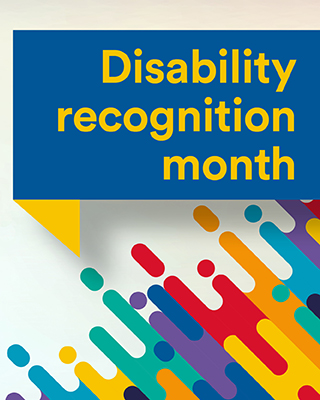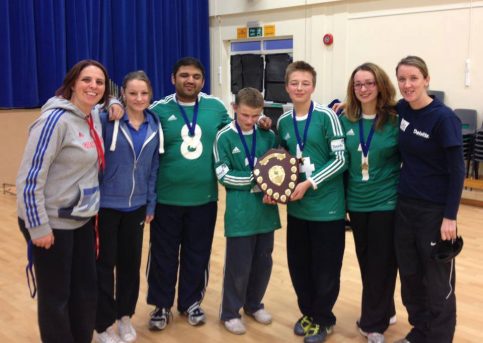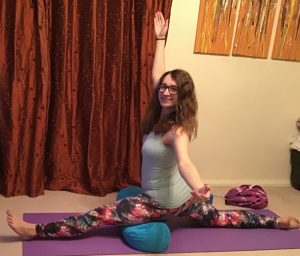
May 21, 2021, by Guest Blogger
Disability Recognition Month Alumni Blog Series: Molly O’Brien
This month, we’re delighted to share a series of blogs from alumni reflecting on this year’s theme of ‘Disability: Finding our way’.
Our alumni have been kind enough to share their experiences of living with a disability whilst studying at Nottingham, how they found transitioning to and from university life and their career journeys to-date, along with their advice to inspire and support for current students and staff.
This week, we’re delighted to introduce alumna, Molly O’Brien, who graduated from Nottingham with a BA in Sociology in 2014 and with an MA in Sociology Research Methods in 2016.
Molly is now a Researcher and Evaluator at Deaf-initely Women, and in this blog she shares her experiences of gaining the support she required from the University to thrive, the challenges of finding accessible employment and her valuable advice for current students, along with staff supporting disabled students, at the University.
We thank Molly for sharing her experiences and encourage you share this inspirational blog with your peers.
Me and my time at Nottingham
“I’m Molly, I have a severe hearing and visual impairment. I have a bilateral severe hearing loss and use two hearing aids. I have central vision, lack of visual accuracy, glare blindness and night blindness. This is my ‘normal’
“I studied at the University of Nottingham for 5 years, for both my Undergraduate and Masters degree. There was many positives and many challenges during my time studying at Nottingham. I really enjoyed my academic studies – at times they were academically challenging and I am so proud of my achievements. I received great support from Disability Support, Student Services and my academic department, to enable me to access my course. I also experienced many challenges relating to my impairments; being visually exhausted from lots of reading (even though I really do enjoy reading!), being visually and auditory tired from focused concentration in lectures, experiencing difficulties hearing staff and fellow students. Despite these difficulties, I had great support from my Support Workers, note takers, academic staff and my family and friends, which assisted me to succeed.
“It was a great challenge studying and living away from home. The University campus is a lovely space and I particularly enjoyed walking around the lake. However, it certainly took a while to learn my routes and find my way visually around the campus and buildings. There were some difficulties navigating the campus, but it became more manageable and I was still finding new places in my final year.
“As my confidence increased, I became involved with various Student Union’s societies and sports over my 5 years at University. Some societies and sports were more accessible to me than others, so I focused on what was best for me. I regularly attended yoga classes, through the Yoga Society, which was such a great help for me. I became involved with various disability sports, as most sports had previously been inaccessible to me. I was able to go swimming and use the gym. I even went horse riding. I was part of the Goalball club, the first team sport I could actually play. University was a great opportunity to try new sports and interests.
“I was also a member of the Disabled Student’s Network, being elected the Disabled Students’ Officer in my final year, which I’m still very proud of holding this role. I was able to meet other disabled students’ with similar interests and build friendships, which greatly enhanced and improved my experience of being at University.”
My journey since graduating
“I currently work as a Researcher and Evaluator for a local charity, Deaf-initely Women, which supports deaf women. The charity is run by deaf women with different levels of hearing loss and communication needs. It is great to work within a supportive team that understands the difficulties of communication and access barriers.

I secured this job 3 years after graduating from University. It was very difficult not being able to find employment for 3 years. There was so many reasons relating to limited opportunities and lack of support. It was rather frustrating knowing I had qualifications, but couldn’t secure work. I did receive job interviews; whilst some interviews were quite accessible, I experienced access and communication barriers at others.
“I did undertake as much volunteering and work experience as I could, to enhance my skills and experience. However, there is no formal support available to assist disabled people to volunteer or gain work experience, so I was reliant upon the organisations being adaptable to suit my needs. Luckily, I was able to find some supportive organisations and I gained some experience – but it was still frustrating. I was initially a volunteer at Deaf-initely Women, an organisation that provides extensive support for their volunteers, before becoming employed.
“Since finishing University I’ve continued to practice yoga, which I started whilst studying. I’m quite excited that this summer I’m undertaking a yoga teacher training course. It’s a great opportunity to continue developing my interests, skills and qualifications.
“At times it’s difficult to find accessible employment, but my career has lots of possibilities now. I enjoy working in the charity sector. I aim to continue to work in research, evaluation and policy work to make a difference.”
My words of wisdom
“My advice to disabled students at Nottingham is to really know your own support needs and make the most of the opportunities available at University. As disabled students, you know your own impairments and health conditions best, so if you can be clear about your support needs it’ll (hopefully) be easier to access your course. Knowing your support and access needs is essential academically, but also for social or sports activities too. I know I increased in confidence through my time at Nottingham, so I now have more confidence explaining my impairments and what support I need. My University experience definitely helped me learn to be more confident and comfortable about my impairments and my support. University can offer so many opportunities academically, socially and sporting. To disabled students, I would advise you to focus on the opportunities you enjoy and that are (or can made) accessible to you.
“My advice to staff supporting disabled students is simply ask disabled students what support they need. It’s simple, but it helps. If staff explain their role, what sort of support is available, talk through any issues and simple ask. It’s a supportive relationship, to enable the student to succeed academically and also experience the social and sporting aspects of University that is right and accessible for them.”
Useful resources
- Further information about the University’s Disability Support Services Team, our specialist service providing student-led support to enable disabled students to flourish as independent learners, is available here: https://www.nottingham.ac.uk/StudentServices/Servicedetails/Disability-Support-Services/Disability-Support-Services.aspx
- Find out more about inclusive sport at Nottingham here: https://www.nottingham.ac.uk/sport/inclusivesport/index.aspx
Many thanks to Molly for sharing her story. If you or someone you know would like to write a piece for the series, please email: Emily.Bateman@nottingham.ac.uk
No comments yet, fill out a comment to be the first

Leave a Reply